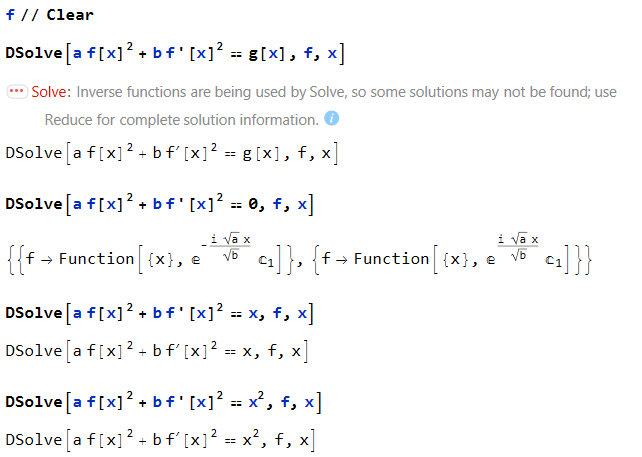I would like to find an analytic solution (if possible) of the differential equation:
$g = c_1 f^2 + c_2 (f')^2$
Where $c_1$ and $c_2$ are constants, $g$ is a known function of $x$, $f$ is another function of $x$ which I'm trying to find, and $f'$ is the derivative of $f$ with respect to $x$. This equation came up when trying to find a sound pressure field related to $f$ such that one gets a required sound radiation force which is related to $g$.
If a general solution is not possible, what about the case of $g = c_3 x^2$?
EDIT:
As suggested by @MichaelEngelhardt, for $g = c_3 x^2$ being a potential function, one can add a constant to it and change the function to: $g = c_3 x^2 + c_3 c_2 / c_1$. In that case one solution to the ODE is $f = \sqrt{c_3/c_1} x$

